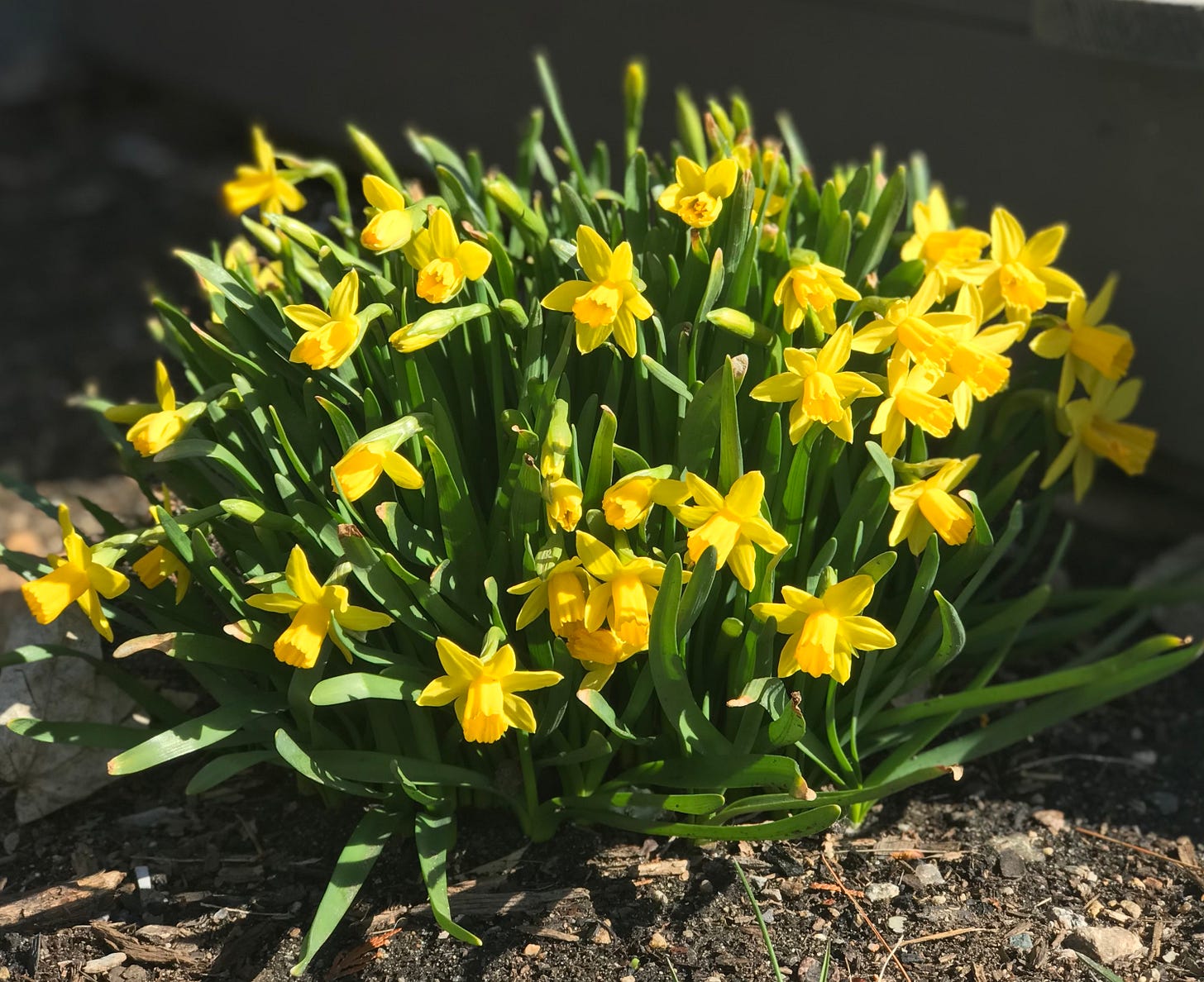Call Me by My Name
On getting specific about what's growing in and around us (plus a brand new, exclusive to Substack poem)
Today is the Spring Equinox, which marks the first day of astronomical spring in the Northern Hemisphere. Boston is finally allowing us some sun today, and even though it is still quite chilly (with a threat of snow flurries this week, arg), I can feel myself softening in many ways.
I’ve allowed myself to walk around the neighborhood without wearing my wool wrapper underneath my winter coat and have taken a break from wearing my mittens. I stroll a little slower this month, not needing to hurry against the winter bitterness to stay warm, but savor each step, not needing to brace myself quite as much against the cold. I am taking my time, and without the need to get in out of the freeze, I find my daily walks take more spontaneous twists and turns. Walk around the corner I’ve not turned down before? Yes. Take the long way around, just because? Why not?
With the sun comes room for slowing a bit.
Anyone watching me on my walks will see that I continue to take photographs of the flowers I see along the way, and that I have now taken to using Google Lens in order to identify the names of the plants I see. Recently, I began reading a wonderful book, Braiding Sweetgrass: Indigenous Wisdom, Scientific Knowledge, and the Teachings of Plants by Robin Wall Kimmerer, and I am amazed at how I have lived so many decades on the earth without fully considering just how much we are an integral part of our earth. I’ve always adored taking photographs of flowers and trees as I’ve walked over the years, but Kimmerer has inspired me to learn the names of the plants I admire so much. Kimmerer writes:
“It's a sign of respect and connection to learn the name of someone else, a sign of disrespect to ignore it. And yet, the average American can name over a hundred corporate logos and ten plants. Is it a surprise that we have accepted a political system that grants personhood to corporations, and no status at all for wild rice and redwoods? Learning the names of plants and animals is a powerful act of support for them. When we learn their names and their gifts, it opens the door to reciprocity.”
Keep reading with a 7-day free trial
Subscribe to The Perpetual Visitor to keep reading this post and get 7 days of free access to the full post archives.


